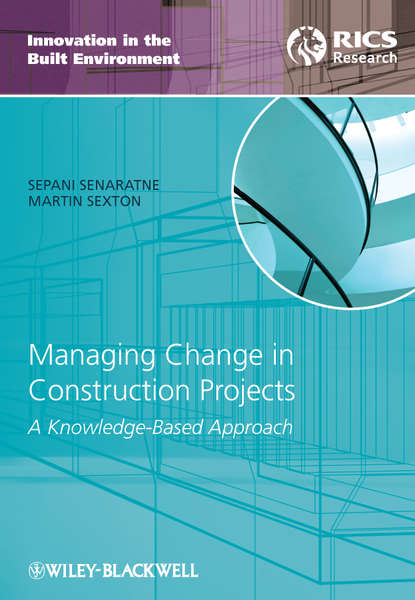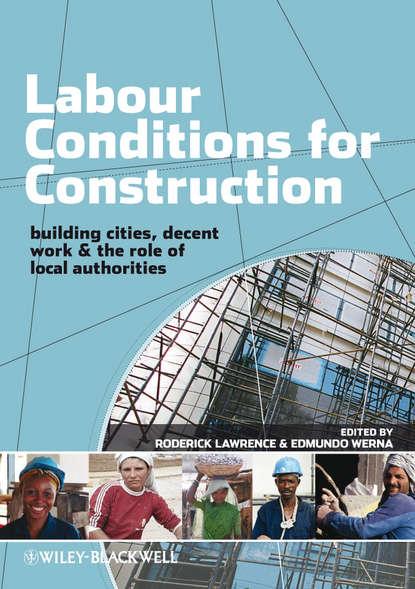Управление изменениями в строительных проектах: подход, основанный на знаниях - предлагает новый взгляд на изменения в строительных проектах, рассматривая процесс управления изменениями как деятельность, основанную на знаниях, где члены команды привносят свои неявные и явные знания в ситуацию, делятся, создают и фиксируют эти коллективные знания для последующего повторного использования в аналогичных ситуациях. Благодаря этому подходу, основанному на знаниях, строительные команды могут успешно разрешать и извлекать уроки из событий, связанных с изменениями, что в конечном итоге приводит к общему повышению эффективности отрасли. Книга внесет значительный вклад в понимание изменений в строительных проектах, предлагая новые теоретические и практические идеи и модели, основанные на результатах исследований, проведенных в рамках двух команд совместных строительных проектов. Показывая, как работает социальное конструирование знаний в строительной среде, авторы бросают вызов распространенным решениям по управлению изменениями, основанным на "жестких" IT-подходах. Они предлагают сбалансированный взгляд, объединяющий IT-ориентированные и социально-конструктивистские подходы к эффективному управлению изменениями в строительных проектах.
Помогает менеджерам строительных проектов совершенствовать и извлекать уроки в процессе изменений в строительных проектах, представляет новые теоретические модели и предлагает практические рекомендации, это первая исследовательская книга, которая напрямую рассматривает изменения проектов с точки зрения знаний, основана на детальных исследованиях строительных компаний, включая Ballast Construction и Kier Construction, побуждает перейти от информационно-ориентированного, процессно-интегрированного подхода к подходу, основанному на знаниях.
Книга “Managing Change in Construction Projects” предлагает новый подход к управлению изменениями в строительных проектах, рассматривая процесс управления изменениями как деятельность, основанную на знаниях, где участники команды приносят свои скрытое и явное знания в ситуацию, делятся, создают и фиксируют это коллективное знание для его повторного использования в аналогичных ситуациях. Благодаря этому подходу, основанного на знаниях, строительные команды могут успешно решать и учиться на основе изменений, что приводит к общему улучшению производительности отрасли. Книга внесет значительный вклад в наше понимание изменений в строительных проектах, предлагая новые теоретические и практические идеи и модели, основанные на результатах исследований, проведенных в рамках двух совместных проектов по строительству. Авторы демонстрируют, как социальное конструирование знаний работает в строительных условиях, бросая вызов преобладающим решениям по управлению изменениями, основанным на “жестких” ИТ-подходах. Они предлагают сбалансированный подход, который объединяет как ИТ-основанные, так и социально сконструированные подходы к эффективному управлению строительными проектами.
Managing Change in Construction Projects is broken up into seven chapters, organized around the views of three main themes: 1. Exploring knowledge management in construction project environments, 2. Identifying key success factors for managing project change and 3. Outlining a multi-faceted approach to project change management that combines both explicit and implicit knowledge, and 4. Discussing the implications of this approach for the construction industry as a whole. This book is divided into three parts. Part I provides an in depth introduction to the topic of project change management within the context of construction projects, along with a discussion of the different approaches to managing change that exist within this industry. Part II focuses on the specific role that knowledge plays in the process of managing project change, with an emphasis on how construction professionals can leverage their tacit and explicit forms of knowledge when dealing with changing circumstances on-site. Finally, Part III describes a "knowledge-integrated" approach to managing project change that seeks to integrate both explicit and tacit forms of knowledge in order to more effectively manage the challenges posed by project changes. There are a number of key takeaways from this book, including the importance of recognizing the role that social networks play in knowledge exchange and sharing within construction environments, as well as the potential benefits of using web-based tools and social media platforms to facilitate communication and collaboration among project participants. Additionally, this book offers practical advice on how to approach project change management, such as developing a project's change management strategy, creating a documentation system for storing and retrieving project-related knowledge, and implementing training programs for employees to increase their overall awareness of how knowledge can be used to their advantage in project settings.
Электронная Книга «Managing Change in Construction Projects. A Knowledge-Based Approach» написана автором Senaratne Sepani в году.
Минимальный возраст читателя: 0
Язык: Английский
ISBN: 9781444392401
Описание книги от Senaratne Sepani
Managing Change in Construction Projects: a knowledge-based approach offers a new perspective on construction project change by viewing the process of change management as a knowledge-intensive activity, where team members bring their tacit and explicit knowledge into the situation; share, create and capture this collective knowledge for future re-use in similar situations. Through this knowledge-based approach, construction teams can successfully resolve and learn from change events, leading to an overall improved performance of the industry. The book will make a significant contribution to our understanding of construction project change by offering new theoretical and practical insights and models grounded in results of case studies conducted within two collaborative construction project team settings. By demonstrating how the social construction of knowledge works in construction settings, the authors challenge the prevailing change management solutions based on ‘hard’ IT approaches. They put forward a balanced view that incorporates both IT–based and socially constructed approaches to effective management of construction project change. helps construction managers to improve and learn through the process of construction project change presents new theoretical models and offers practical guidelines first research-based book to directly address project change from a knowledge-based perspective draws on detailed studies with construction companies, including Ballast Construction and Kier Construction encourages a move from the information driven, process integrated approach to a knowledge-based view



















